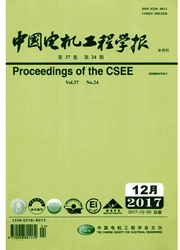

 中文摘要:
中文摘要:
针对热工过程分段线性化的特点, 本文提出一种新的基于递阶模糊聚类的热工过程多模型建模方法.首先基于递阶G-K模糊聚类对系统输入/输出数据空间进行快速聚类分解,避免了聚类数确定的盲目性; 然后在每个子空间中利用最小二乘法辨识出相应的线性子模型,再将各子模型通过模糊加权求和以得到精确的系统全局模型.同时,为保证各聚类子空间内样本的"线性化度",采用新的综合聚类指标, 并利用免疫遗传算法来求解该聚类问题, 以克服迭代算法易陷入局部极小和对聚类初始化敏感的缺点.该方法能充分利用运行数据中所包涵的对象动态特性信息, 以描述过程的全局非线性.最后通过几个典型实例验证了该方法的有效性、准确性.
 英文摘要:
英文摘要:
By taking into account the fact that most thermal process are characterized by Subsection-linearization, a novel multi-model modeling methodology for thermal process based on hierarchical fuzzy clustering is presented in this paper. The proposed method partitions the I/O data space into some subspaces by hierarchical Gustafson-Kessel(G-K) fuzzy clustering firstly, then the linear model for each local region is built by least-square identification algorithm. Finally, towards obtaining accurate predictions over the entire operating range, a fuzzy composition strategy to aggregate the local model predictions is proposed, which ensures smooth transitions between the local models. Moreover, in order to guarantee linearity within each subspaces, this paper adopts a new fuzzy clustering object function, and utilizes immune genetic algorithm to solve the new clustering problem, which not only avoids the local optima but also is robust to initialization. The method can makes the best use of the plant dynamic information involved in the operating data, so that can describe the overall nonlinearities accurately and the effectiveness is proved by some simulation examples.
 同期刊论文项目
同期刊论文项目
 同项目期刊论文
同项目期刊论文
 期刊信息
期刊信息
